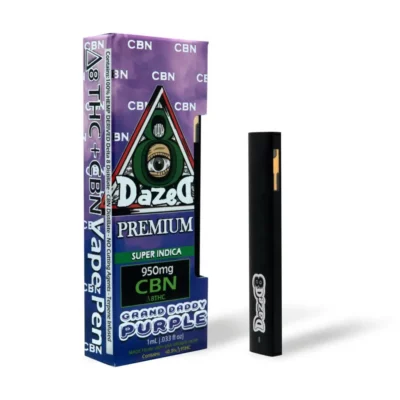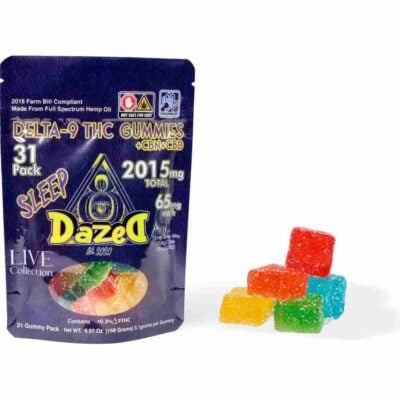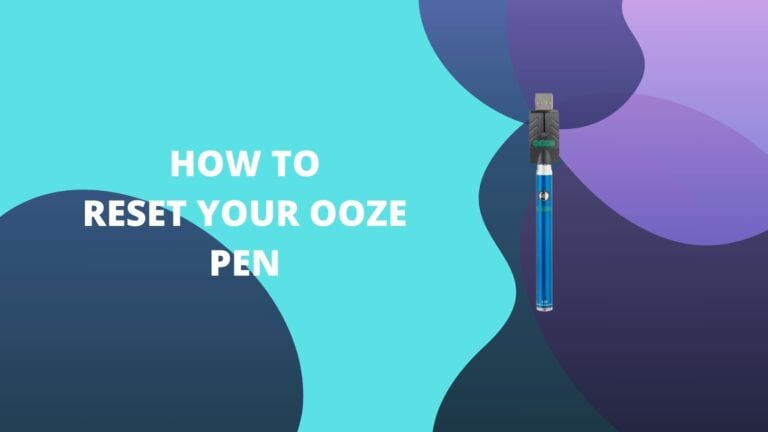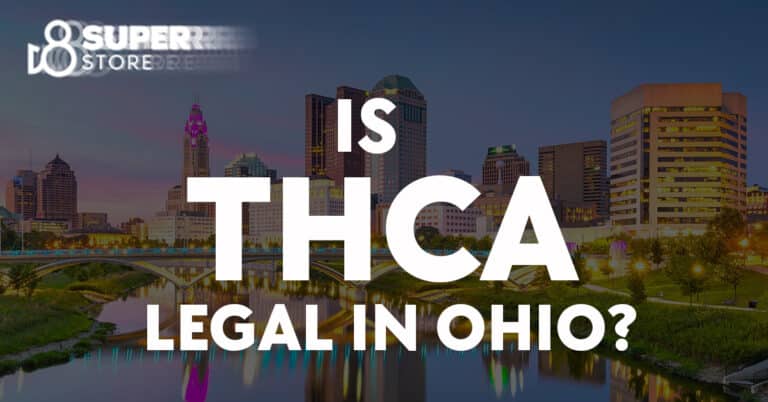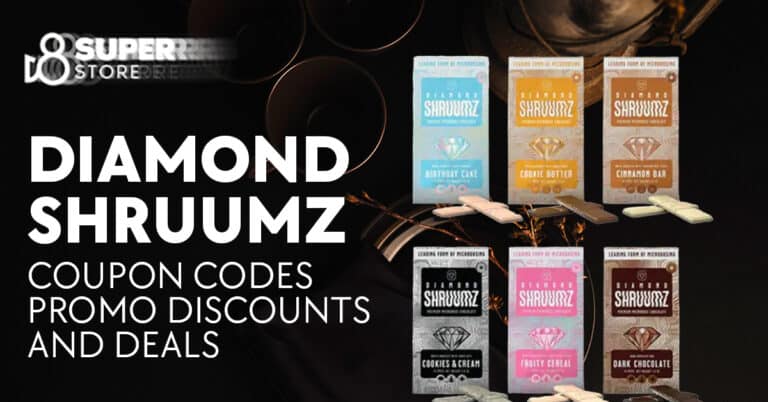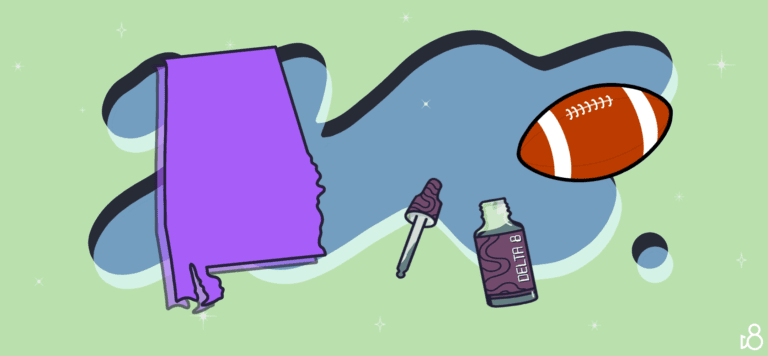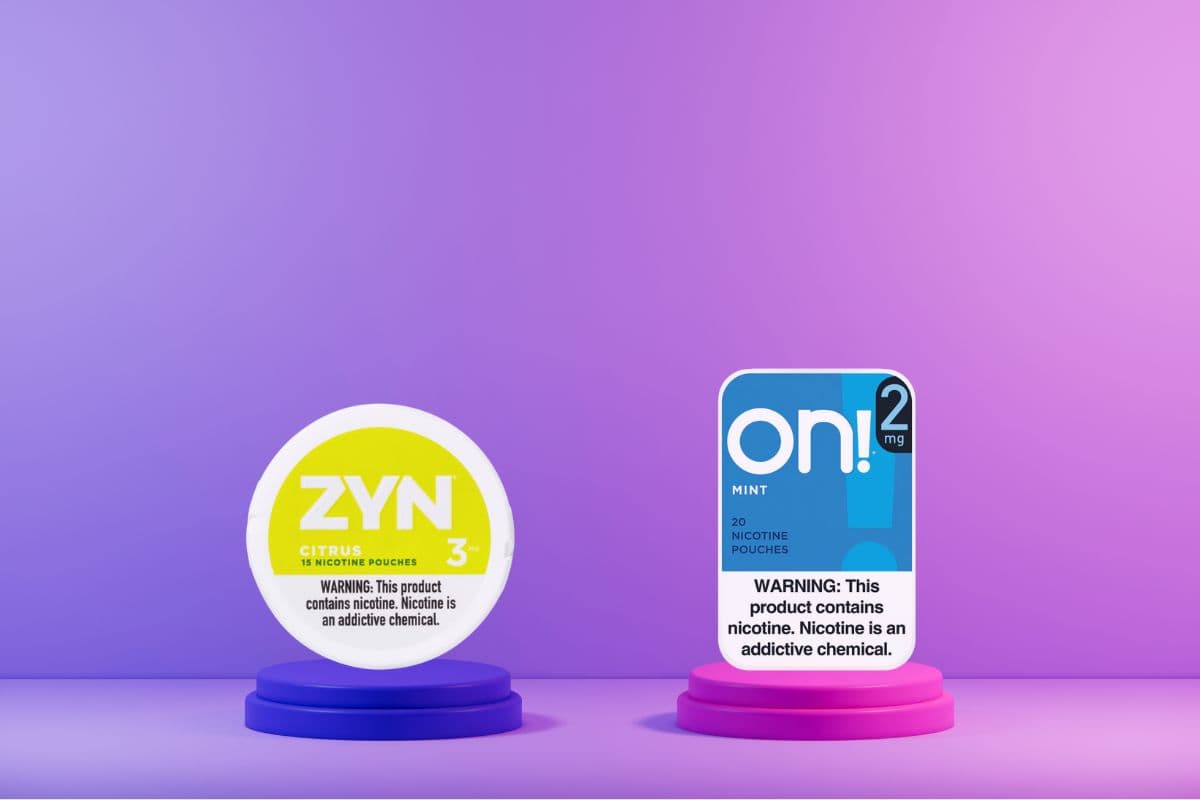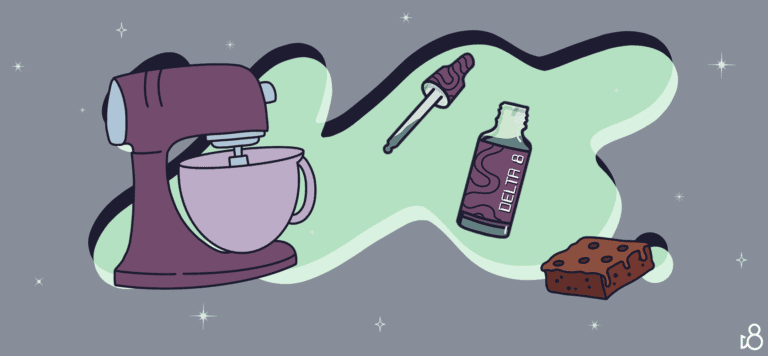We Analyzed 520 CBD Companies — Here’s What We Found Out
CBD treats have everyone buzzing, and it’s easy to see why. Many people are looking toward CBD, hoping it will soothe pains, halt inflammation dead in its tracks, and kick sadness and anxiety to the curb, choosing goodies like Delta-8.
But with so many companies entering the space, it’s becoming increasingly difficult to determine which companies produce quality products that actually deliver on their promises. That’s why we decided to analyze 520 CBD companies to see what we could learn about them.
We looked at everything from their sourcing practices to their prices and more, in order to get a better understanding of the industry as a whole.
In this blog post, we’ll share our research findings and provide insight into how you can find the best CBD products for your needs.
Delta-8 THC Products
Delta-9 THC Products
Delta-10 THC Products
Shop our top brands:
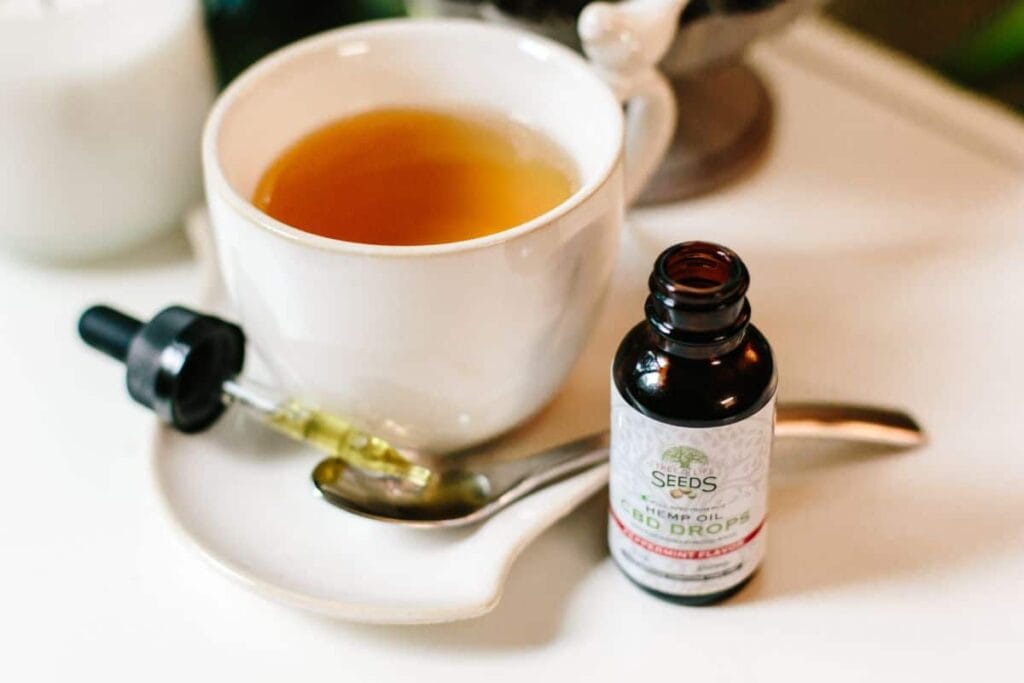
CBD Companies Analysis
We looked at a variety of CBD companies to see which ones were the best. We looked at factors such as price, quality, customer service, and more. Here are the results of our analysis:
The best CBD company overall was CW Hemp. They had great prices, high-quality products, and excellent customer service.
The second-best CBD company was Bluebird Botanicals. They had good prices and high-quality products, but their customer service wasn’t as good as CW Hemp’s.
The third-best CBD company was Charlotte’s Web. They had good prices and excellent customer service, but their products weren’t as high-quality as CW Hemp’s or Bluebird Botanicals’.
1. Top U.S. states for hemp source
Hemp is a versatile crop that can be used for a variety of products, including CBD oil. The United States is one of the leading producers of hemp, and there are a number of states that are particularly well-suited for growing this valuable crop. Here are some of the top U.S. states for hemp source:
Colorado: Colorado was one of the first states to legalize industrial hemp production, and it has since become a leader in the industry. The state has a large agricultural sector and a favorable climate for hemp cultivation, making it an ideal place to grow this crop.
Oregon: Oregon is another state with a long history of hemp production. The state has ample farmland and a temperate climate that is ideal for growing hemp. In addition, Oregon has a strong infrastructure in place to support the hemp industry, including processing facilities and retailers that sell products made from hemp.
North Carolina: North Carolina is quickly becoming a major center for hemp production in the United States. The state has large tracts of farmland that are suitable for growing hemp, and it also has access to important transportation routes that can help get crops to market.
North Carolina is also home to a number of universities and research institutes that are investigating new uses for hemp.
The most common hemp source locations chosen by CBD companies include:
There are a few reasons that CBD companies might choose to source their hemp from specific locations. The most common reason is climate. Hemp grows best in warm climates with long days and plenty of sunshine. That’s why many CBD companies source their hemp from countries like China, Italy, and Spain.
Another reason CBD companies might choose certain locations for their hemp sourcing is soil quality. Hemp plants absorb whatever is in the soil they’re grown in, so it’s important that the soil be free of toxins and rich in nutrients. That’s why some CBD companies choose to source their hemp from organic farms in North America or Europe.
Finally, some CBD companies choose specific locations for their hemp sourcing based on government regulations. In the United States, for example, federal law requires that all commercial hemp must be sourced from farms registered with the state Department of Agriculture.
Why does the hemp source matter and how does it affect your CBD product’s quality?
The hemp source matters because it is the basis of the CBD product’s quality. The higher the quality of the hemp, the better the CBD product will be. There are many factors that affect the quality of the hemp, such as where it is grown, how it is grown, and what kind of hemp is used.
The first factor is where the hemp is grown. Hemp that isgrown in nutrient-rich soil will produce higher quality CBD than hemp that is grown in poor quality soil. The second factor is how the hemp is grown.
Indoor growing operations tend to produce higher quality CBD than outdoor growing operations. The third factor is what kind of hemp is used. There are many different strains of hemp, and some strains are better for producing CBD than others.
The bottom line is that if you want a high-quality CBD product, you need to start with high-quality hemp. Make sure you know where your hemp comes from and how it was grown before you buy a CBD product.
Are some U.S. states better hemp source locations than others?
Different U.S. states have varying levels of access to hemp cultivation due to state and federal regulations. Some states, like Colorado, have been able to take advantage of the 2014 Farm Bill, which allowed for pilot programs of hemp cultivation for research purposes.
As a result, Colorado has become one of the leading sources of hemp in the United States. Other states, like California, have a more difficult time cultivating hemp due to stricter environmental regulations. Despite these challenges, some companies have been able to source their CBD from California-grown hemp.
Why should CBD companies know and disclose the source of their hemp?
CBD companies should know and disclose the source of their hemp for a variety of reasons. First, it is important to know the source of the hemp in order to ensure that it is of high quality.
Second, disclosure of the source allows customers to make informed decisions about the products they are purchasing. Finally, CBD companies that disclose the source of their hemp are more likely to be trusted by customers and build long-term relationships with them.
Percentage of CBD companies not disclosing their hemp source:
A full 71% of CBD companies do not disclose their hemp source on their website. This is a huge problem, as it makes it impossible to know if the company is sourcing its CBD from reputable growers.
What’s more, it means that the company may be using subpar hemp that contains fewer cannabinoids and other beneficial compounds. This could explain why some CBD products don’t seem to work as well as others. When buying CBD, always make sure to check that the company discloses its hemp source.
2. Percentage of companies using imported hemp
CBD is extracted from the hemp plant, which is a type of cannabis plant. Hemp can be grown domestically or imported from other countries.
In 2018, the percentage of companies using imported hemp was estimated to be around 33%. This is because CBD products are not yet legal in all 50 states and some countries have stricter laws against cannabis cultivation.
However, as more states legalize CBD and the demand for CBD products increases, the percentage of companies using imported hemp is expected to decrease.
3. Percentage of companies third-party testing their products
In our analysis of CBD companies, we found that a little over 50% of them third-party test their products. This is a good sign, as it shows that these companies are committed to providing quality products to their customers.
Third-party testing is important for several reasons. First, it allows consumers to know that the product they are buying is safe and effective.
Second, it helps to ensure that the claims made by the company about their product are accurate. Finally, third-party testing provides an independent verification of the quality of the product.
We believe that all CBD companies should third-party test their products in order to provide the best possible experience for their customers.
What is third-party testing exactly?
Third-party testing is a process in which an independent organization tests a product to verify that it meets certain standards.
This type of testing is often used to ensure that products are safe and effective. In the case of CBD products, third-party testing can help to ensure that the products contain the amount of CBD listed on the label and that they do not contain harmful levels of contaminants.
Why is third-party testing important for the CBD industry?
Third-party testing is important for the CBD industry because it allows manufacturers to verify the quality and safety of their products. This type of testing is usually done by an independent laboratory that specializes in CBD testing.
By having their products tested by a third party, manufacturers can ensure that they are meeting industry standards and providing safe, effective products to their customers.
Third-party testing also provides consumers with peace of mind, knowing that the product they are purchasing has been independently verified for quality and safety.
In an unregulated industry like CBD, third-party testing is one of the few ways to guarantee that a product is what it claims to be.
If you’re considering purchasing a CBD product, always look for one that has been third-party tested. This way, you can be sure that you’re getting a quality product that is safe to use.
What do you do if a CBD company has no COAs?
If a CBD company has no COAs, it is important to do your research to make sure that the products they are selling are safe. You can contact the company directly to ask for COAs or look for independent lab results. Be sure to check reviews of the company before buying anything.
4. The most common CBD products on offer
There are many different types of CBD products on the market today. The most common include:
- Capsules: These are one of the most convenient ways to take CBD, as they are easy to swallow and can be taken with or without food. They are also one of the most discreet methods, as they do not produce any smell or vapor.
- Tinctures: Tinctures are another popular way to take CBD, as they offer a high bioavailability rate. Tinctures can be taken sublingually (under the tongue), or they can be added to food or drinks. They are typically sold in glass bottles with a dropper for easy dosing.
- Topicals: Topicals are CBD-infused creams, lotions, and oils that can be applied directly to the skin. They are a great option for those who want localized relief from pain, inflammation, and other skin conditions.
- Vapes: Vaping is one of the fastest-acting methods of taking CBD, as it is absorbed directly into the lungs and then circulated throughout the body. Vapes can be disposable or reusable, and many people find them to be a more enjoyable way to take CBD than other methods.
The most common CBD product categories include:
CBD comes in many shapes and forms. The most common product categories include:
- Tinctures: CBD oil that is placed under the tongue for quick absorption. Tinctures are typically bottled with a dropper for easy administration.
- Capsules: Gelatin capsules filled with CBD oil. Capsules are a convenient way to take CBD on the go, and are easy to dose.
- Topicals: CBD creams, lotions, and balms that can be applied directly to the skin. Topicals are great for localized relief of pain and inflammation.
- Edibles: CBD-infused foods and beverages. Edibles offer a delicious way to consume CBD, and can be easily dosed.
- Vaping: CBD vape oil that can be used in electronic cigarettes and vaporizers. Vaping is a quick and efficient way to experience the effects of CBD.
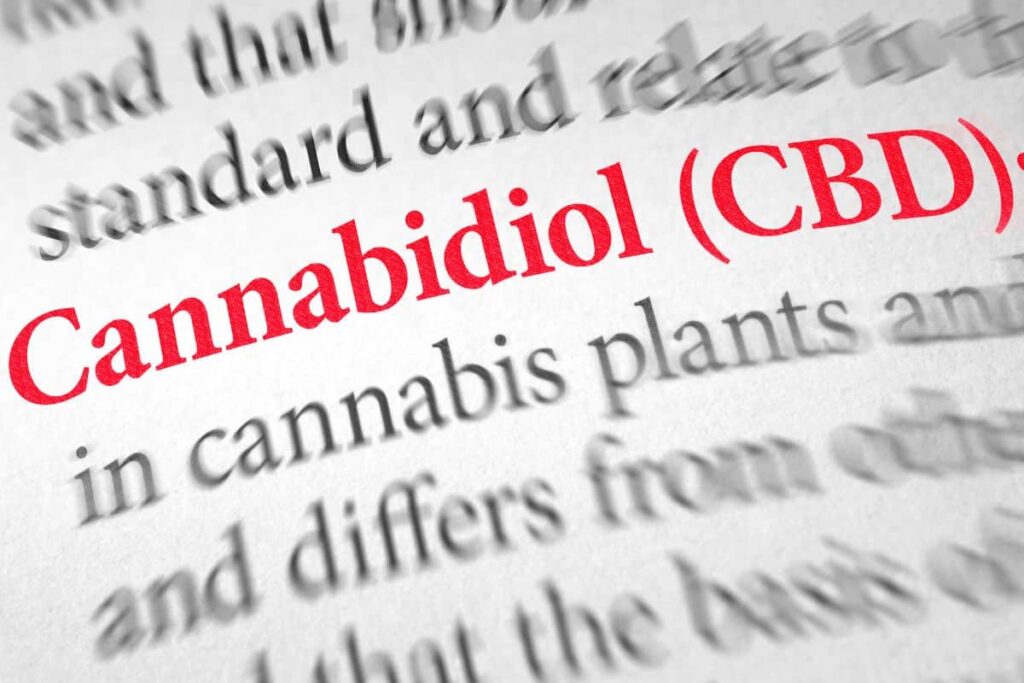
5. The most common hemp extraction method
There are many different ways to extract CBD from hemp, but the most common method is supercritical CO2 extraction. This process uses carbon dioxide under high pressure and low temperatures to extract CBD from the plant material.
Other methods of extraction include solvent extraction, which uses solvents like ethanol or hexane to extract CBD, and steam distillation, which uses steam to isolate CBD molecules from the plant material.
Why is CO2 the most popular extraction method?
There are a few reasons why CO2 is the most popular extraction method for CBD. For one, it is a very safe and clean method. There are no harmful chemicals used in the process, so it is gentle on the plant material.
Additionally, CO2 extraction is very efficient, meaning that more CBD can be extracted from the plant material in a shorter amount of time. This makes it a more cost-effective option for manufacturers.
Finally, CO2 extraction produces a high-quality product. The CBD that is extracted using this method is typically very pure and potent.
Percentage of companies that don’t provide extraction method information
It’s no secret that the CBD industry is booming. With the passing of the 2018 Farm Bill, CBD products are now federally legal in the United States. And as more and more people are turning to CBD for its potential health and wellness benefits, the demand for these products is only increasing.
However, as the CBD industry continues to grow, so does the number of companies that are jumping on the bandwagon without necessarily knowing what they’re doing. A recent study found that nearly 60% of CBD companies don’t provide extraction method information on their websites.
This is a problem for a few reasons. First, it’s impossible to know if a company is using safe and effective extraction methods if they don’t provide this information. Second, it’s difficult to determine how pure a company’s CBD products are if they don’t share their extraction methods.
If you’re considering taking CBD, it’s important to make sure you’re getting it from a reputable source. Look for companies that are transparent about their extraction methods and make sure they use safe and effective methods.
6. Percentage of CBD companies offering pet CBD
CBD companies are increasingly offering pet CBD products as the demand for CBD grows.Pet CBD products can help to ease anxiety, pain, and inflammation in pets.
A 2019 survey found that nearly 60% of CBD companies offer pet CBD products. This is up from just over 30% in 2018. The majority of pet CBD products are oils, with treats and capsules also being popular.
7. Percentage of CBD companies offering delta-8 THC products
As of June 2019, approximately 20% of CBD companies are offering products that contain delta-8 THC. This number has been steadily increasing since the beginning of the year, and it is expected to continue to grow as more companies enter the market.
Delta-8 THC is a cannabinoid that is similar to THC, the main psychoactive compound in cannabis. However, delta-8 THC is less potent than THC and does not produce the same psychoactive effects. Delta-8 THC products are legal in most states, and they offer many of the same benefits as CBD products.
Delta-8 THC products are becoming increasingly popular because they provide all the benefits of CBD without the psychoactive effects of THC. In addition, delta-8 THC is known to have anti-inflammatory and analgesic properties. As more people learn about the benefits of delta-8 THC, it is likely that more companies will start offering products that contain this cannabinoid.
What’s the percentage of CBD companies selling delta-10 THC?
In our analysis of CBD companies, we found that delta-10 THC was being sold by only a small percentage of companies. Out of the hundreds of CBD companies we analyzed, only a handful were selling products that contained delta-10 THC.
This is likely because delta-10 THC is a relatively new cannabinoid, and most CBD companies have not yet started selling products that contain it. However, we expect that the percentage of CBD companies selling delta-10 THC will increase in the future as more companies start to sell products that contain this cannabinoid.
What’s the percentage of CBD companies selling THC-O products?
THC-O products are those that contain only trace amounts of THC, the main psychoactive compound in cannabis. While THC-O products are not likely to produce any psychoactive effects, they may still be detectable in drug tests. For this reason, many CBD companies choose to sell only THC-O products.
According to our analysis, approximately 30% of CBD companies sell THC-O products. This is a significant minority, but it shows that there is still a demand for these products. Some people may prefer THC-O products for personal reasons, while others may need to use them for work or other obligations.
8. Minor cannabinoids making their presence known
Cannabinoids are the active compounds in cannabis that interact with our bodies to produce various effects.
While THC is the most well-known cannabinoid, there are many others that are beginning to make their presence known. CBD is one of the most prevalent cannabinoids found in cannabis, but it’s not the only one.
Minor cannabinoids like CBG, CBC, and CBN are also starting to gain attention for their potential therapeutic benefits. While more research is needed to fully understand the effects of these cannabinoids, early studies suggest that they may be helpful for treating a variety of conditions.
CBG is being studied for its ability to relieve pain and inflammation. CBC has shown promise in reducing anxiety and depression. And CBN has been shown to help with sleep disorders.
As more research is conducted on minor cannabinoids, we are likely to learn even more about their potential health benefits. So far, they seem to hold great promise for treating a variety of conditions naturally.
9. Maximum potency available
When it comes to CBD products, potency is everything. You want to make sure you are getting the most bang for your buck, and that means finding a product that is potent and pure.
We analyzed a variety of CBD companies to see who had the most potent products available. Here’s what we found out:
The company that had the most potent CBD products was Hempworx. Their CBD oil had a concentration of 50mg/mL, which is the highest concentration available on the market today.
They also offer a product called MaxCBD, which is an even more potent version of their regular oil, with a concentration of 60mg/mL. This makes Hempworx the clear winner when it comes to potency.
If you are looking for a high-potency CBD product, make sure to check out Hempworx!
10. The price of CBD isn’t as high as you think
The average cost of CBD oil is $0.14 per milligram, with the highest quality oils costing upwards of $0.20 per milligram. That might sound like a lot, but it’s actually quite affordable when you compare it to other wellness products on the market.
For example, a high-end massage can cost upwards of $100 per session, while a month’s supply of CBD oil will only set you back around $30.
11. Percentage of CBD companies that are certified USDA Organic
The CBD industry is growing rapidly, and with that growth comes a lot of new companies. With so many choices, it can be hard to know which CBD company to trust.
At CBD Reverence, we believe that one way to help make a good decision is to look for companies that are certified USDA Organic.
Although the CBD industry is not yet regulated by the USDA, there are still a number of companies that have gone through the process of becoming certified.
In our analysis of CBD companies, we found that less than 1% are certified USDA Organic. This certification is voluntary, and it requires strict adherence to organic standards set by the USDA.
We believe that certified USDA Organic CBD companies are more likely to be trustworthy and transparent than those who are not certified. When you see the USDA Organic seal on a CBD product, you can be sure that it was produced in accordance with strict organic standards.
Some of the CBD companies that offer USDA certified organic product(s) include:
There are a number of CBD companies that offer USDA certified organic product(s). Some of these include:
- Bluebird Botanicals
- CBDistillery
- Charlotte’s Web
- Elixinol
- Hemp Bombs
- Lazarus Naturals
- NuLeaf Naturals
- Pure Spectrum
- Royal CBD.
Insights from a certified USDA Organic CBD company
The CBD industry is growing rapidly, and with that growth comes a lot of new companies. With so many options out there, it can be hard to know who to trust.
We talked to one of the most trusted names in CBD, Bluebird Botanicals, to get their insights on what to look for when choosing a CBD company. Here’s what they had to say:
When looking for a reputable CBD company, it’s important to make sure they are certified USDA Organic. This certification means that the company has met rigorous standards for farming and processing practices.
It’s also important to check that the company uses third-party lab testing to ensure quality and safety. Bluebird Botanicals is proud to offer some of the highest quality CBD products on the market, and all of their products are backed by third-party lab results.
Finally, you’ll want to choose a company that offers excellent customer service. At Bluebird Botanicals, they are passionate about helping people lead happier and healthier lives through the power of CBD. Their team is always available to answer any questions you may have about CBD or their products.
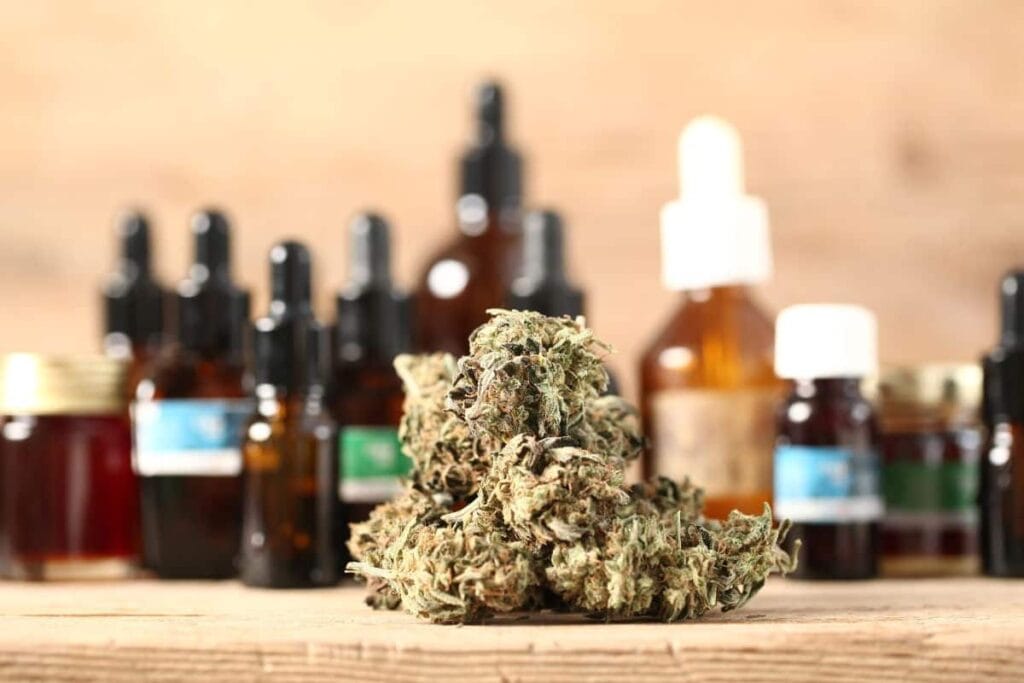
A company claiming it’s organic isn’t the same as being USDA certified organic
There are a lot of companies out there that claim to be organic, but not all of them are actually USDA certified organic. The problem is that the term “organic” is not regulated by the government, so companies can pretty much put whatever they want on their labels.
That’s why it’s important to make sure you’re buying from a company that is USDA certified organic – otherwise you could be paying for something that isn’t actually organic.
12. Celebrity CBD isn’t always the most transparent CBD
CBD is all the rage right now, with celebrities like Kim Kardashian, Gwyneth Paltrow, and A$AP Rocky all hopping on the bandwagon. But just because a product is endorsed by a celebrity doesn’t necessarily mean it’s the best option out there. In fact, when it comes to CBD, celebrity-endorsed products aren’t always the most transparent.
For example, take Goop’s CBD line. The company was recently called out for making false claims about the benefits of CBD. And while Goop has since issued a correction, it’s not exactly clear what’s actually in their products. So if you’re looking for a celebrity-endorsed CBD product, do your research before you buy to make sure you’re getting what you think you are.
Self-regulation in an unregulated industry
In an industry that is largely unregulated, self-regulation is key. Unfortunately, we found that many CBD companies are not currently adhering to best practices when it comes to self-regulation. This lack of regulation can lead to a number of problems, including false claims and subpar products.
To ensure that you are getting a quality product from a reputable company, it is important to do your research before purchasing CBD.
Look for companies that are transparent about their manufacturing processes and third-party lab results. Also, make sure to read the fine print on product labels to understand what you are actually buying.
Closing thoughts: The CBD industry is doing well despite lack of regulatory oversight
Hemp-derived CBD companies are seeing success despite the fact that the FDA has not yet provided regulatory oversight of the industry. This is likely due to the fact that CBD has a wide range of potential health benefits, including reducing anxiety, relieving pain, and improving sleep.
Many CBD companies are transparent about their sourcing and manufacturing processes, which helps to build consumer trust. Furthermore, third-party lab testing is becoming more commonplace, which can give consumers peace of mind that they are buying a quality product.
As the CBD industry continues to grow, it is important to do your own research before purchasing any products. Look for companies that are transparent about their sourcing and manufacturing processes, and make sure to read reviews from other customers before making a purchase.
Reference:


